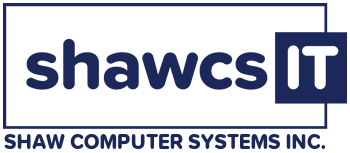Land Acknowledgement
We respectfully acknowledge that Shaw Computer Systems Inc. (shawcsIT) operates on the treaty and territory of the Mississauga Anishinaabeg, the ancestral territory of the Michi Saagiig and Chippewa Nations, collectively known as the Williams Treaties First Nations, which include: Curve Lake, Hiawatha, Alderville, Scugog Island, Rama, Beausoleil, and Georgina Island First Nations.
Shaw Computer Systems Inc. (shawcsIT) respectfully acknowledges that the Williams Treaties First Nations are the stewards and caretakers of these lands and waters in perpetuity and that they continue to maintain this responsibility to ensure their health and integrity for generations to come. We offer our gratitude to the First Peoples for their care of, and teachings about, our earth and our relations. May we honour those teachings.
What is a Land Acknowledgement?
A Land Acknowledgement is a formal statement that recognizes the relationship and territory of the Indigenous Peoples of Canada. The statement consists of acknowledging the original inhabitants by mentioning Treaty Rights and/or the colonization process to provide an understanding of positive allyship by acknowledging the land and its Original Peoples. Land acknowledgements do not exist in a past tense or historical context: colonialism is a current ongoing process, and we need to build mindfulness of our present participation.
Beyond Acknowledgement
Although it is important to acknowledge the land, it is only a first step. We are all treaty signers and are thus responsible and accountable for the violence that Indigenous people face. Allyship is a continuous process; it is not a designation that one can earn and hold forevermore. It is also not a label one can give themselves, but one you earn from your actions and commitment to standing in solidarity.
Here are some simple ways you can begin the ongoing and continual process of acting in solidarity with Indigenous people in Canada:
Learn: About oppression and privilege. About the history of colonization. About Indigenous peoples and cultures, in particular – the “Seven Grandfather Teachings” about the land you live on.
Listen: There are many books, blogs, documentaries, independent media sites, plays, and songs that Indigenous people have written and performed that are great places to start learning.
Build relationships: Building relationships with Indigenous communities is a very important aspect of standing in solidarity.
Act: Be accountable towards Indigenous people and communities by supporting them. What they are saying is important, align oneself with the struggle and speak up when something problematic is said.
Respect: Practice respect for all living things.

The information posted was audited by the National Aboriginal Lands Managers Association for accuracy.
Miigwetch (thank you).

